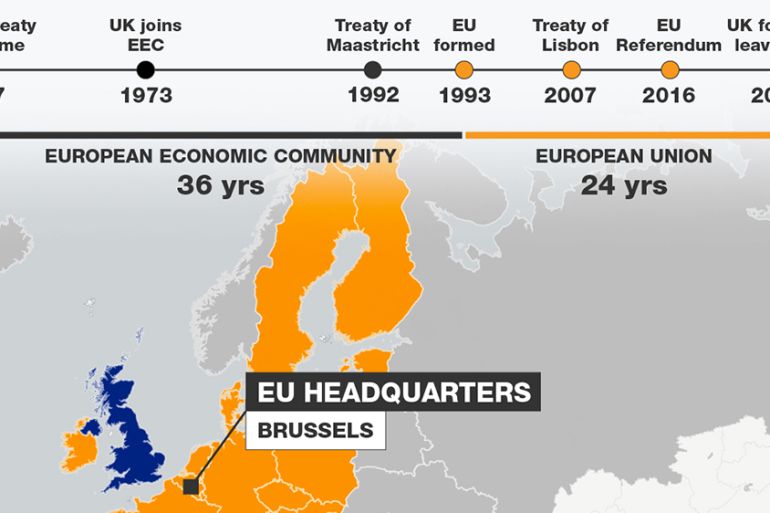Brexit: What is Article 50?
It will begin the process of the UK leaving the EU, but what exactly is Article 50?

The British government will formally notify the European Council of its decision to leave the European Union by invoking Article 50 of the Lisbon Treaty.
The European Council is composed of the heads of state or government in each EU country.
Keep reading
list of 4 itemsMapping pro-Palestine college campus protests around the world
Satellite images reveal Israeli destruction of hospitals in Gaza
Mapping Israel-Lebanon cross-border attacks
The Lisbon Treaty, which was ratified by each member state between 2007 and 2009, came into force on December 1, 2009.
The agreement forms the constitutional basis for the 28-member organisation and includes within it five paragraphs pertaining to a country’s decision to exit the bloc.
Of these, two carry significance with regard to the negotiations the UK now enters into with the EU.
The second provision of Article 50 states that the withdrawal agreement is subject to approval by a majority of European Council members and only after they have received consent from the European parliament.
The third provision states that the agreement on the terms of the exit must be reached within two years of the European Council being notified of a country’s intention to leave the bloc. This deadline can be extended if the European Council unanimously agrees.
This UK needs to reach agreement on a wide range of contentious and complex issues such as trade, freedom of movement, visa policies, security, and financial regulation, among others, within two years of triggering Article 50.
Can it do that? “Impossible,” says the EU’s chief negotiator Guy Verhofstadt.
![Infographic: What is Article 50? [Al Jazeera]](/wp-content/uploads/2017/03/7e1b7877057b46d4b63cffe05688d60d_6.jpeg)